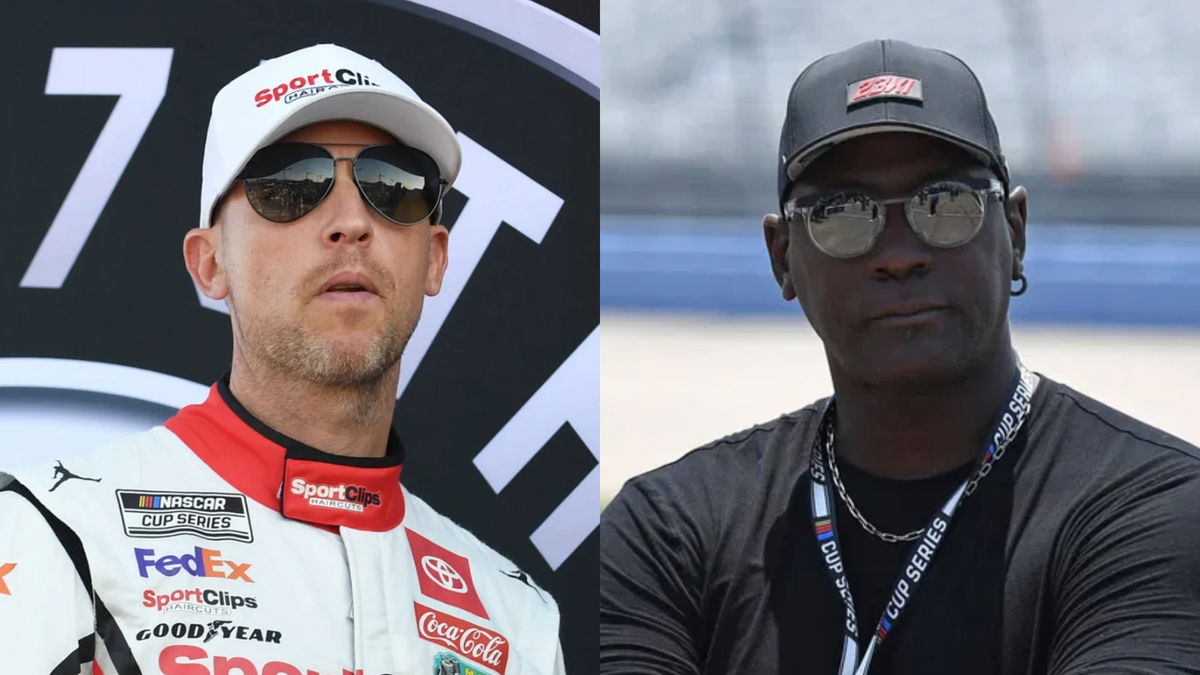
Imago
Image Credits: Imago

Imago
Image Credits: Imago
Tensions simmer in the NASCAR garage as the ongoing antitrust lawsuit filed by 23XI Racing and Front Row Motorsports against NASCAR casts a long shadow over the entire sport. This legal battle, initiated on October 2, 2024, challenges NASCAR’s charter system and alleged monopolistic practices, affecting not just the suing teams but all 36 Cup Series entries, their crews, drivers, and even track operations. U.S. District Judge Kenneth Bell, in his hearings, cautioned that “everybody is going to get hurt if this thing goes a certain way,” highlighting the high stakes for the industry’s future. With the 2025 playoffs underway, the uncertainty ripples through every garage stall, prompting whispers of major disruptions ahead.
Watch What’s Trending Now!
The lawsuit’s reach extends beyond courtroom arguments, putting financial pressures on teams reliant on charter-guaranteed revenue and starting spots, while NASCAR holds six charters in reserve amid the dispute. As sponsors and broadcasters watch closely, the divide between the holdout teams and the 13 that signed the new charter deal grows, fueling anxiety about operational stability. A recent denial of a preliminary injunction on September 3, 2025, left 23XI and Front Row without chartered status for now, intensifying concerns across the paddock. Yet, as insiders dig deeper, the real fears emerge from what could unfold for the teams if no resolution comes.
NASCAR garage braces for lawsuit fallout
In the latest episode of the Teardown podcast, hosted by Jeff Gluck and Jordan Bianchi, the discussion zeroed in on why tensions are skyrocketing in the NASCAR garage amid the antitrust suit. Gluck recapped the court’s recent moves, noting, “We did have the preliminary injunction for the teams get overturned by or not overturned, rejected by the judge.” This rejection, issued by Judge Kenneth Bell on September 3, 2025, stemmed from his view that the teams wouldn’t face irreparable harm, as NASCAR pledged to keep enough charters available post-resolution.
The background here traces to the teams’ refusal to sign the 2025-2031 charter agreement, which they claim perpetuates unfair revenue shares and restricts competition, echoing broader industry grumblings that surfaced when 23XI, co-owned by Michael Jordan, and Front Row filed suit last October, alleging NASCAR’s control over tracks and parts stifles growth. Bianchi amplified the unease, explaining how this could spell “Armageddon” for the sport.
“There’s a lot of nervous people in this industry who are looking at this going, and they echo the judge’s words, which is, there are going to be no winners; even whoever wins in this is going to be a loser.” This sentiment reflects the potential for a trial verdict to upend NASCAR’s structure, possibly forcing sales of tracks or overhauls to the charter system that guarantees about $8-10 million annually per team in revenue. For the suing teams, the fallout includes risks like driver contracts voiding; Tyler Reddick’s claim of breach at 23XI highlights this, while the other 13 signed teams worry about diluted prize funds or sponsor pullbacks, as seen in past racing splits like the 1990s CART-IRL divide that fragmented open-wheel racing for years.
The podcast hosts delved into the broader game-changing effects, with Bianchi stressing, “It is potentially the most significant thing that ever could happen to NASCAR. And there’s people looking at this going, what can we do to figure out a resolution here? What can we do to bring these two sides together so we don’t have Armageddon?” Substantiating this, the lawsuit’s antitrust claims could mandate open competition, allowing teams to race in rival series or negotiate better media deals, fundamentally altering power dynamics long held by the France family.
Teams like Front Row, which bought a Stewart-Haas charter amid the chaos, face operational limbo, and the entire garage feels the pinch as playoff focus shifts to legal briefs, potentially eroding fan trust if the December 1, 2025, trial exposes more internal rifts. As the courtroom drama heats up, voices from across the sport are chiming in on the latest developments. What do these insiders see coming down the track?
Insider predicts lawsuit ripple effects
NASCAR insiders are buzzing over the judge’s denial of the injunction, with many predicting a rocky road ahead for all involved. On the Door Bumper Clear podcast, Rick Ware Racing’s competition director Tommy Baldwin shared his take. “I think you have two sides that are very strong-willed groups, and then you have two lawyers that have gone up against each other many, many times in these types of situations and don’t like each other.” This points to the entrenched positions, where 23XI and Front Row’s push against alleged monopolies clashes with NASCAR’s defense of its business model, potentially dragging out disputes and straining relationships among team owners who once collaborated on negotiations.
Baldwin didn’t hold back on the escalating tensions, stating, “Unfortunately, I think it’s going to get worse, a lot worse, before it maybe going to get better.” His words underscore the fear that without a settlement, the trial could lead to mandated changes like breaking up NASCAR‘s track ownership, which includes 12 Cup venues, or revising parts supply rules that critics say inflate costs. This fallout might hit smaller teams hardest, as they rely on the stability of the current system, and could even prompt sponsor hesitancy in a sport where media rights deals top $1.1 billion annually.
Wrapping up his thoughts, Baldwin noted, “I don’t think, personally, if it goes to trial, I don’t think anybody’s going to win-win. I mean, NASCAR has a lot to lose, right? According to the judge’s comments, he could do whatever he wants. Our sport could change because of this lawsuit.” This prediction aligns with broader concerns that a loss for NASCAR might invite more litigation or fragment the series, while a win could alienate teams further, eroding the collaborative spirit needed for growth. As the community watches, these insights remind everyone that unity might be the only way to steer clear of lasting damage.








